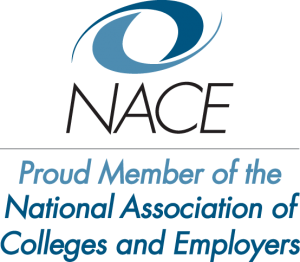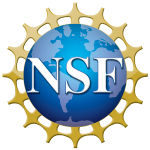jobZology is built on a principle supported by decades of research – the better the fit between a person and a work environment, the better the outcomes for both parties.
Person-environment fit (P-E fit) theories suggest that employees who are in roles that fit well with their psychological make-up tend to be satisfied, want to stay in their jobs, and perform well for their employers. Based on this principle, employers who want to reduce turnover and improve the levels of satisfaction and well-being of their employees can evaluate how well their workers fit with the roles to which they are assigned.
Employers can improve the morale, job performance, and their capacity to retain good workers by selecting employees based on fit. Job-seekers, too, can improve their long-term satisfaction and passion for work by pursuing jobs that fit well with their preferences and values. In general, the better the fit, the better the outcomes.
How do most organizations hire?
Most hiring managers recruit to maximize the number of applications or résumés they get, even if in doing so they overwhelm their capacity to process all of them. After using what often is an ad hoc method of paring down hundreds of applicant résumés into a manageable few, employers might call a few references (hand-selected by the applicant) and then schedule an interview. During the interview, typically a loosely-structured first-date-like event in which applicants work very hard to give the right impression, the hiring manager goes with a “gut feeling” about candidate fit and makes an offer, often to the most likable candidate.
Too often the person hired is only the best interviewee, and, unfortunately, interview performance alone is only weakly to moderately correlated with eventual job performance and tenure with the organization.1 Organizations can improve their hiring strategies with methods that are rooted in science.
How does jobZology improve the way organizations hire?
jobZology leverages science within industrial-organizational psychology and vocational psychology to match employers with job-seekers more efficiently. Our predictive models combine P-E fit theories that focus on both fit to one’s job and fit to an organization.
Specifically, jobZology uses methods designed to identify the candidates least likely to leave their organization and most likely to find their work satisfying. We do so by assessing a number of psychological characteristics that allow us to better understand individuals’ likes and dislikes for types of work activities or occupations, their core values, their patterns of thought and behavior, as well as their preferences for certain types of work environments.
To accomplish this, jobZology builds on decades of research conducted by top scholars in applied psychology, paired with new, cutting-edge research conducted at Colorado State University to:
- Predict the level of fit between job-seekers and employers based on personal attributes and unique characteristics of the job
- Incorporate reliable and valid assessments into your hiring processes
- Provide candidate feedback and suggested structured interview questions to further assess candidate fit.
Using Fit to Predict Business Outcomes
jobZology’s methodology is designed to provide high-quality information that predicts key outcomes critical for organizational success, such as retention, employee satisfaction, commitment, and loyalty
- Kristoff-Brown, Zimmerman, and Johnson (2005) found that person-organization (P-O) fit based on organizational preferences (using same measurement approach as the jobZology methodology) correlated .29 with job satisfaction (n=16,706), .27 with organizational commitment (n=15,316), and -.19 with intent to quit (n=14,835), whereas person-job (P-J) fit correlated .28 with job satisfaction, .21 with organizational commitment, and .20 with overall performance.2
- Arthur, Bell, Villado, and Doverspike (2006) evaluated the criterion-related validity of fit as it relates to employment decision making and found that P-O fit (value congruence) correlated .34 with turnover (n = 942) and .39 (n = 11,716) with attitudinal criteria.3
Meta-analytic research such as this provides evidence that the jobZology measures constructs that are predictive of important personal and business outcomes. Results also suggest that combining fit-to-job and fit-to-organization likely offers even greater predictive power than any single construct alone, a possibility that requires testing directly using the jobZology methodology.
Predictive Validity of jobZology’s Algorithms
Additional in-house research provides direct tests of the jobZology system and demonstrates its effectiveness. For example:
- Results of internal research conducted in Fall 2017 show that, using jobZology’s full suite of assessments, our client was able to improve job satisfaction by 24% over baseline and decrease turnover intentions by 19% over baseline. We also examined the relationship between jobZology assessments scores and longitudinal performance, which suggested hiring on the basis of jobZology Fit scores improved the prediction of job performance in any one month by 10-18% over baseline.
The jobZology solution starts with a brief research study that fully customizes our algorithms for the client to maximize impact on your bottom line. At a client’s request, we can conduct an additional study that provides clear, strong documentation of impact.
References
McDaniel, M. A., Whetzel, D. L., Schmidt, F. L., & Maurer, S. D. (1994). The validity of employment interviews: A comprehensive review and meta-analysis. Journal of Applied Psychology, 79, 599-616.
Kristof-Brown, A. L., Zimmerman, R. D., & Johnson, E. C. (2005). Consequences of individuals’ fit at work: A meta-analysis of person-job, person-organization, person-group, and person-supervisor fit. Personnel Psychology, 58, 281-342.
Arthur Jr., W., Bell, S. T., Villado, A. J., & Doverspike, D. (2006). The use of person-organization fit in employment decision making: An assessment of its criterion-related validity. Journal of Applied Psychology, 91, 786-801.







